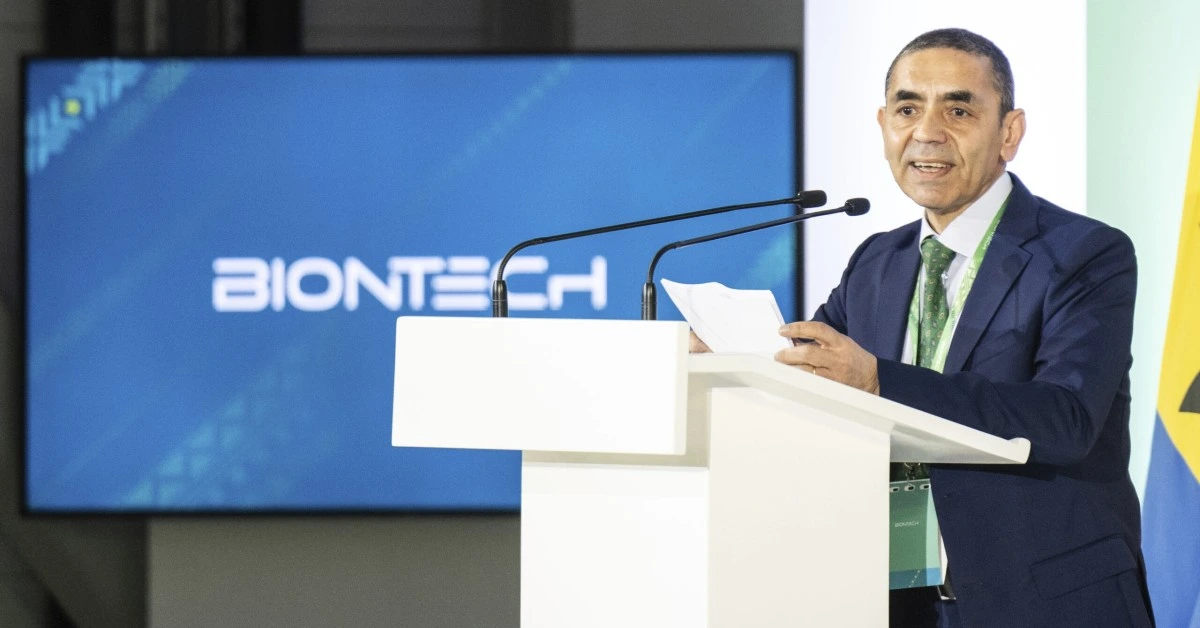
GERMANY – BioNTech has entered into a definitive agreement to acquire Chinese biotech company Biotheus, securing complete global rights to BNT327/PM8002, a bispecific antibody targeting both programmed death-ligand 1 (PD-L1) and vascular endothelial growth factor A (VEGF-A).
The acquisition aligns with BioNTech’s strategy to bolster its oncology portfolio and accelerate the development of combination cancer therapies.
Fueled by revenues from its COVID-19 vaccine collaboration with Pfizer, the company is actively developing a portfolio of cancer vaccines and antibody-drug conjugates.
Professor Ugur Sahin, BioNTech’s CEO and co-founder, expressed optimism about the deal:
“We believe that BNT327/PM8002 has the potential to set a new standard of care in multiple oncology indications, surpassing traditional checkpoint inhibitors.
“We are committed to advancing its research and development in combination with our investigational mRNA vaccines, targeted therapies, and immunomodulators to enhance outcomes for patients with solid tumours.”
The deal includes an upfront payment of US $800 million to Biotheus shareholders, mostly in cash with a portion in American Depositary Shares.
An additional US $150 million in performance-based payments may follow upon achieving specific development milestones.
The transaction, which is subject to regulatory approvals and customary conditions, is expected to close in the first quarter of 2025.
Expanding research and manufacturing in China
Through the acquisition, BioNTech will also gain access to Biotheus’ pipeline of products and its proprietary bispecific antibody-drug conjugate technology.
The move strengthens BioNTech’s presence in China with the addition of a research and development hub and a biologics manufacturing facility.
This expansion complements an existing licensing agreement between the companies established in November 2023, which granted BioNTech global manufacturing and commercialization rights for BNT327/PM8002 outside Greater China.
The deal also highlights BioNTech’s investment in China amid growing complexities in the region.
While pharmaceutical companies like Merck, GSK, and AstraZeneca have pursued licensing agreements in China, challenges such as regulatory scrutiny and geopolitical tensions have become increasingly apparent.
Despite these hurdles, BioNTech remains committed to establishing itself as a leader in oncology.
Advancing clinical trials for key cancer therapies
Registrational trials for BNT327/PM8002 will begin later this year and extend into 2025.
These trials aim to evaluate the drug in combination with chemotherapy for solid tumour indications, including small cell lung cancer, non-small cell lung cancer, and triple-negative breast cancer.
By acquiring Biotheus, BioNTech gains full control over BNT327/PM8002, positioning the company to advance the drug through late-stage trials and potentially redefine treatment standards for these cancers.
BNT327/PM8002 distinguishes itself from traditional checkpoint inhibitors, such as Keytruda, by incorporating VEGF inhibition to suppress tumour growth.
This dual mechanism enhances the immune system’s ability to recognize and destroy cancer cells while addressing tumour-promoting factors.
XRP HEALTHCARE L.L.C | License Number: 2312867.01 | Dubai | © Copyright 2025 | All Rights Reserved